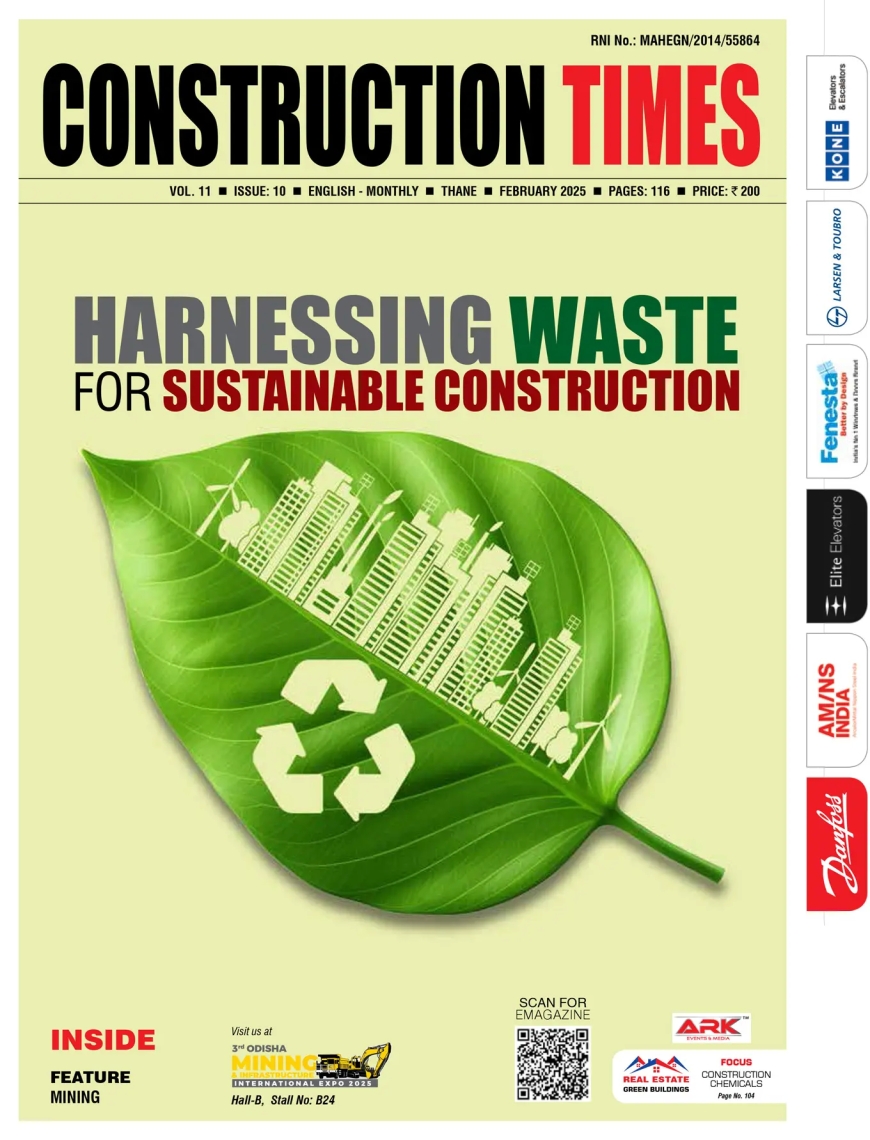We are witnessing ICT and digital evolving into the 'new normal' in real estate.
Niranjan Hiranandani - MD, Hiranandani Group of Companies What is your outlook on the RE sector in Mumbai, the growth drivers, and how sustainable the growth trends? The real estate sector is a trusted indicator for gauging the health of an economy. The sector accounts for almost 7% of the


Niranjan Hiranandani
- MD, Hiranandani Group of Companies
What is your outlook on the RE sector in Mumbai, the growth drivers, and how sustainable the growth trends?
The real estate sector is a trusted indicator for gauging the health of an economy. The sector accounts for almost 7% of the Indian GDP, employs around 15% of the total workforce, while supporting around 270 ancillary industries. In my view, the future of the real estate sector overall is bullish and specifically for Mumbai. Rapid urbanisation and employment opportunity will fuel the real estate demand in the financial capital of India. The ramping up of vaccination drive post pandemic crisis acts as a relief for the resumption of economic activities. The demand for homes has been on uptick on grounds of safety, security and stability it offered during Covid crisis. Additionally, the fiscal impetus and booster dose by the government and regulatory bodies have played a catalytic role in augmenting the home demand.
The new normal has nudged the developers for some remodelling of the products design to suit the new- age customers. The industry will factor in innovative demands in terms of amenities, space layouts, and surrounding ecosystem that was exhibited during covid-19.
Commercial real estate was the most affected segment, but it is poised for strong growth recovery with rising GDP and dire need to get back to office work culture for most of the industries. Future of work holds great potential in backdrop scaling investment by domestic as well as global investors, massive infrastructure push to build end- end connectivity and trend of decentralization picks up due to preferred decongestion post pandemic crisis. Also, new business districts will emerge in linear growth towards North of the city, which will observe a trend of expansion and consolidation fuelling demand for more office spaces. Also, demand for independent boutique offices will be in demand due to remote work culture and growing need of business centres in close proximity of residence. The other asset classes like industrial and logistics parks, data centres have emerged as new growth drivers in the emerging economy.
To the million dollar question, is this sustainable: we need to understand that in the process of recovering from last year's Covid-19 pandemic, as also the Tsunamis of recent policy reforms from previous years, there has been a good beginning made through 'mission unlock'. From home loan interest rates being at historic lows, reducing circle rates or stamp duty, there have been positive moves from policy & regulatory aspects. The cumulative constructive measures by concerned industry stakeholders has led to bolstering of sales and record break property registration across the housing segments. The extension of fiscal impetus will garner the sustainable growth in the real estate
What are the current challenges and what further regulatory / policy reforms do you expect for the sustainable growth of the sector?
The Indian economy is on a growth curve where policy & regulatory measures must be in sync and accordance to fuel development. To support pent up demand into a sustainable growth, 'ease of doing businesses and continual fiscal impetus needs to be ramped up. Among challenges, project finance has always been a bugbear; last mile funding is a new segment which has grown over the past few years; both need immediate solutions. Stressed project funding for stalled and delayed projects is being addressed through the SWAMIH Fund, but the quantum needs to be drastically ramped up by allowing more financing institutions to be in play. Time bound permissions and single window clearances are among the major factor needing quick redressal.
How the Information Communication Technology - ICT - and digital platforms have impacted the sector in the entire eco-system?
The past decade has seen Indian real estate gradually adopt global best practices; automation, use of technology and digital platforms were among those. The Covid-19 pandemic induced lockdowns worked as a catalyst, ensuring huge adoption of these across the industry. So, projects are conceived and planned to use virtual and augmented reality; digital is the new working platform; artificial intelligence and big data drive marketing activities; sales now rely on virtual reality for property preview and on-line payment/ booking platforms. The product designing is incorporating digital savvy amenities and infrastructure in project layout, the construction process has more automation and technology than ever before. 'PropTech' has emerged as the sunrise segment, and we are witnessing ICT and digital as evolving into the 'new normal' when it comes to the real estate eco system.
Tell us about your footprint in Mumbai, and projects on the pipeline in Mumbai.
Mumbai is not just a geographical entity; it is a city that extends through neighbouring urban conglomerations across known as the Mumbai Metropolitan Region (MMR). The Hiranandani Group of companies are active across locations like Powai, Thane and Panvel. Residential and commercial are both focal areas in terms of development projection for FY 2021-22. Launch of new residential projects is in the pipeline across above three locations with new product segments like studio apartments in the offering bouquet. The company has laid a huge pipeline for commercial spaces in terms of boutique offices, large built to suit offices and mid-size ready to move into offices in Thane. Data centre is geared to be operational by this financial year in Panvel.
Hits: 286
















